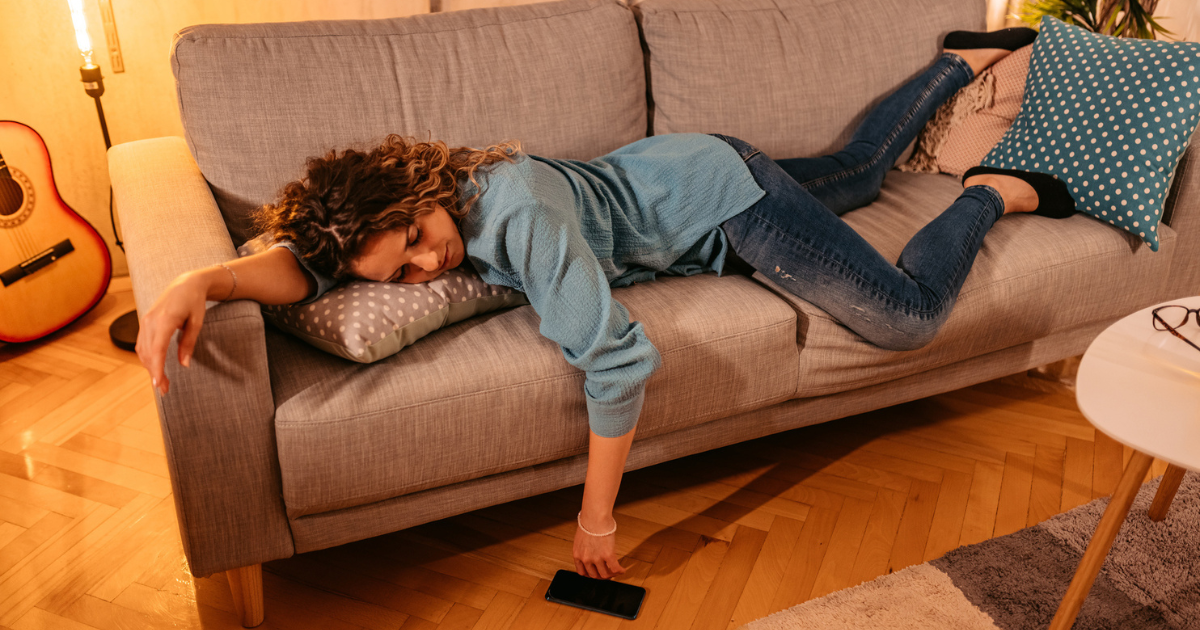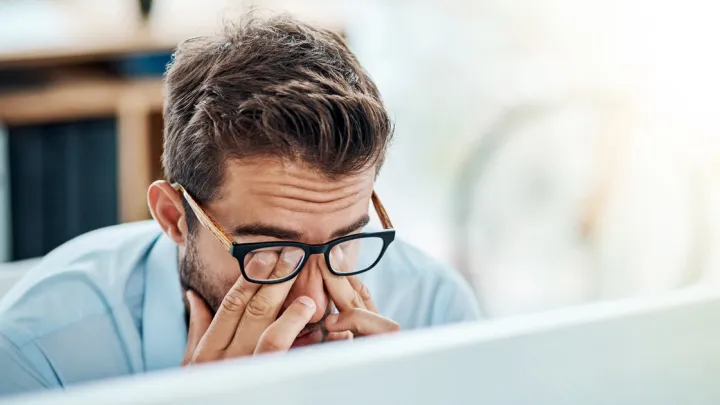3 ways to boost energy without caffeine

Caffeine is a part of most adults’ lives. About 87% of Americans consume at least one caffeinated product a week, according to Nutrition Journal. While caffeine can help you wake up or stay awake, it does come with some downsides.
Potential negative side effects of caffeine
One negative side effect of caffeine is that it’s a diuretic. A diuretic moves fluids more quickly through the body which increases how often you urinate. “If you’re starting your day with a caffeinated product, especially after fasting overnight, you’re dehydrating yourself,” says family medicine provider Lauren Richards, PA-C.
Because caffeine is a diuretic, it can also raise your heart rate and blood pressure, which may place added stress on your kidneys and heart over time.
When consuming caffeinated drinks, it’s important to be aware of the caffeine content. These beverages can be misleading. The average canned energy drink has around 210 mg of caffeine, which is about equal to two cups of coffee. Even one drink can be a lot.
Luckily, there are ways to boost your energy without relying on caffeine.
Watch what you eat and drink
To sustain your energy throughout the day, it’s important to avoid significant dips in blood sugar. “The way to avoid such decreases is by incorporating protein, specifically lean sources of protein, into your diet,” says Richards.
Pair the protein with a fruit or vegetable for fiber and a complex carbohydrate like brown rice or whole wheat bread. “These foods will help slow down the digestion process and keep you feeling fuller for longer,” says Richards.
In addition to proper nutrition, drinking enough water is vital. To ensure you’re getting enough water, take your weight in pounds, divide it by two and convert that number to ounces. This is how much water you should drink each day.
However, what you eat will impact the amount of water you need. “Those who eat saltier foods will need to balance it out with more water during the day,” says Richards. “Electrolytes can help you stay hydrated, too.”
When it comes to staying hydrated, water is the best option. “Drinks like soda and juice won’t have the same benefit because they have excess sugar or caffeine themselves,” says Richards.
Get active
Exercise is an effective way to boost and maintain your energy. “I recommend you get at least 150 minutes of exercise a week, or 20 to 30 minutes a day,” says Richards.
The intensity of this exercise should be at the level of at least a brisk walk. If you’re reaching this intensity, it doesn’t matter what type of aerobic exercise you participate in. Such exercise supports blood pressure and healthy heart function. Resistance training is also important as it helps build muscle mass.
If you work at a desk, moving throughout the day is essential. Taking short breaks — like walking flights of stairs or around the building — can give you an energy boost without relying on a caffeinated product.
Manage sleep and stress
Sleep is vital to maintaining your energy. “You should keep as consistent a sleep schedule as possible,” says Richards. “This consistency will help you fall asleep faster and stay asleep better.” Aim for 7 to 10 hours of sleep per night.
Because caffeine has a long half-life — up to 5 hours — it can still impact your body long after you stop feeling its effects. So, if you drink coffee in the afternoon, it can negatively impact your sleep because your brain is trying to function as if it has caffeine. “I tell patients that 2 p.m. is the last point at which you should be drinking caffeine,” says Richards.
Stress management is crucial for staying energized. “A lot of people don’t track their stress or understand how it can affect their energy throughout the day,” says Richards. Activities like meditation or sunlight exposure — especially for those who work indoors — can help you be less groggy, especially during the afternoon hours.





